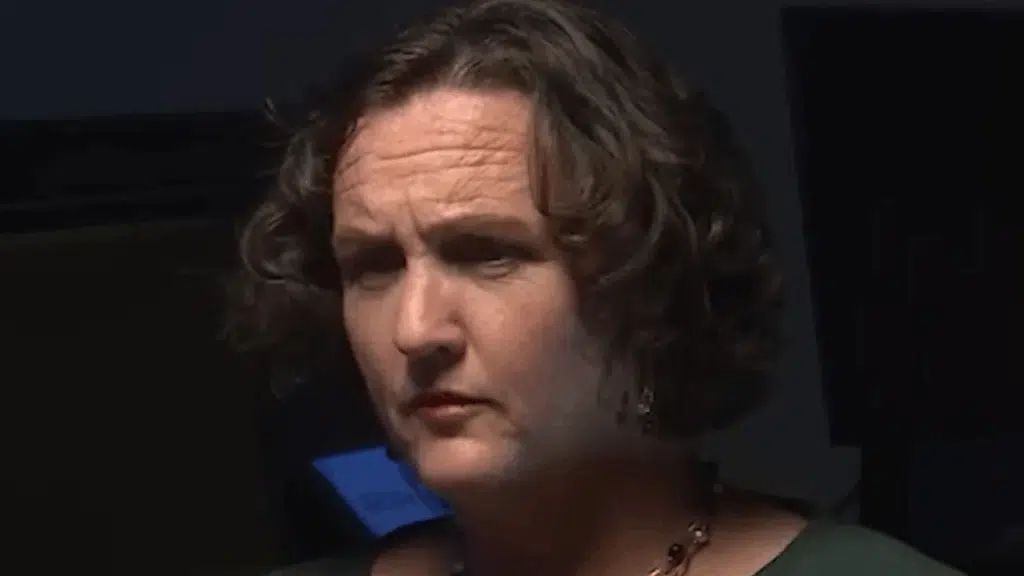
Is This Unelected Panel Targeting Trump-Appointed Inspectors General?
In the past month, Department of Homeland Security Inspector General Joseph Cuffari’s office has issued reports citing problems with the Biden administration’s assessments for allowing high-risk individuals into the country, and another report calling for improved vetting of the claims of asylum-seekers.
But while working as the top oversight official of DHS, Cuffari contends, he has been targeted with what he says are baseless and retaliatory investigations.
He was appointed as the top watchdog of the DHS by then-President Donald Trump in 2019 and confirmed by a voice vote in the Senate. The panel investigating him is primarily made up of nonpresidential appointees known as the Council of the Inspectors General on Integrity and Efficiency (CIGIE), and more specifically, the council’s Integrity Committee.
Some inspectors general can only be fired by President Joe Biden upon notifying Congress, while others can be fired by a board of directors of a particular agency.
In recent weeks, the rift within the inspectors general community has prompted Congress to take notice, with an eye on this potential politicization.
The seemingly different standard caught the attention of Congress. Rep. Andy Biggs, R-Ariz., who spearheaded a May 23 letter co-signed by eight other House Republicans, to Amtrak Inspector General Kevin Winters in Winters’ capacity as chairman of the Integrity Committee. The Amtrak board of directors made Winters inspector general in January 2019. By June 2020, he became chairman of the Integrity Committee, the council’s investigative arm.
Other signers of the letter were Republican Reps. Greg Steube and Matt Gaetz of Florida, Pete Sessions of Texas, Clay Higgins of Louisiana, Thomas Massie of Kentucky, Dan Bishop of North Carolina, Harriet Hageman of Wyoming, and Glenn Grothman of Wisconsin.
Gail Ennis resigned on May 31 as inspector general of the Social Security Administration amid an inquiry by the Integrity Committee. Ennis was nominated by Trump in 2019 and confirmed by the Senate. Her departure occurred just weeks after Railroad Retirement Board Inspector General Martin Dickman was fired after being in the role for 30 years.
‘Dysfunction, Dishonesty by Senior Leadership’
A few months after Cuffari started his job, his office referred allegations against three senior employees in his office to the Integrity Committee in October and November of 2019.
Allegations of wrongdoing included fraud, misconduct, retaliation, and abuse of authority. Some of those were said to be by employees using office resources to try to prevent the Senate from confirming Cuffari. He was nevertheless confirmed on a voice vote.
He was “faced with an untenable structure and apparent insubordination” from employees, according to a federal lawsuit filed by Cuffari against CIGIE in March 2023.
“In his many years of military and other government service, Mr. Cuffari had never encountered this level of dysfunction and dishonesty by senior leadership,” the federal court complaint says. “There was a level of withholding information, flouting rules, disrespect for proper authority and risk of disgrace to the organization he was unfamiliar with.”
Late last year, a federal court in the Eastern District of Virginia dismissed a lawsuit brought by Cuffari and his senior staff at the DHS Office of Inspector General against the council, alleging harassment from baseless inquiries.
The lawsuit alleged the Integrity Committee declined to investigate certain misconduct that the inspector general found among certain employees at the DHS Office of Inspector General.
In retaliation, employees in his office filed complaints against Cuffari with the Integrity Committee, which investigated the complaints thoroughly, according to the lawsuit.
The court dismissed the lawsuit finding the plaintiffs had not shown harm, such as losing their jobs. The plaintiffs’ lawsuit claimed the damage was that responding to frivolous investigations from the Integrity Committee drained time and resources from conducting real investigations into waste, fraud, or abuse at the Department of Homeland Security.
In November 2019, the Integrity Committee informed the Homeland Security Office of Inspector General it would not take further action on the allegations.
Upon receiving the complaints, the Integrity Committee staffer said that Cuffari “has to stop filing these complaints,” according to the federal lawsuit. That was “apparently in reference to the documented allegations against various OIG senior staff.”
Independent, Third-Party Investigation
So, in May 2020, the DHS Office of Inspector General contracted with the law firm of Wilmer Cutler Pickering Hale and Dorr LLP to do an independent investigation of the three employees in lieu of an Integrity Committee investigation.
Better known as Wilmer-Hale, it’s a Washington law firm with a Democrat-leaning reputation, but a firm that has worked for both parties.
Wilmer-Hale’s investigation substantiated many of the allegations and provided evidence to back up others and issued a report.
The Wilmer-Hale report also determined that the then-vice chairperson of the Council of the Inspectors General on Integrity and Efficiency, Allison Lerner—now its chairperson, as well as the inspector general of the National Science Foundation—encouraged certain actions of the three employees.
“Allison Lerner, who while serving as vice chair of CIGIE, encouraged two OIG DHS senior executives to use government resources and their official titles to interfere in the Senate advice-and-consent process in hopes of scuttling IG Cuffari’s nomination,” the lawsuit says.
It goes on to say, “Despite Ms. Lerner having been personally involved in an attempt to defeat IG Cuffari’s nomination, she did not recuse herself from investigations into Mr. Cuffari.”
The final Wilmer-Hale report was provided to the Integrity Committee, which still did not investigate the matter.
After the Wilmer-Hale report, that’s when the retaliation occurred, Cuffari’s lawsuit alleges.
“In response to IG Cuffari’s attempts to reestablish order within DHS OIG, he was faced with a relentless stream of meritless retaliatory complaints to the IC,” the lawsuit alleged. “The complaints initiated a series of IC investigations, follow-ups, and requests for supplementary information, which now total more than [38].”
“The complaints baselessly alleged an endless series of transgressions by IG Cuffari, most of which have been closed with no action or any findings,” the lawsuit contends.
Others are still pending. Still, “responding even to these complaints took an inordinate amount of time and resources and interfered with IG Cuffari’s ability to perform his duties,” Cuffari’s lawsuit says.
The Integrity Committee is still investigating whether it was proper to contract with Wilmer-Hale for the inquiry. Cuffari argues that in lieu of action by the Integrity Committee, an outside investigator was necessary because of interoffice conflicts of interest.
The Cuffari lawsuit contends that government employees and investigators are effectively immune from libel and slander.
“Because there is virtually no redress for a slanderous report, due process protections during the investigation and report-preparation stages are even more necessary and required,” the lawsuit says.
The facts didn’t add up for members of Congress.
“This chain of events and the Integrity Committee’s failure to act on these serious allegations is highly concerning, especially given that three of the implicated individuals remained in federal service,” the Biggs letter says.
The letter from Biggs and other GOP House members asks several questions, including: “Given the severity of the allegations made, why did the Integrity Committee decline to investigate in 2019?”
It also asked: “After a copy of the Wilmer-Hale report was provided to the Integrity Committee by DHS OIG, did the Integrity Committee review the report’s conclusions?” and “Has the Integrity Committee reconsidered any of its allegation-review procedures or thresholds for determining whether to open an investigation?”
In this case, “the watchers of the watchdogs appear to have missed the mark,” Biggs said in a public statement separate from the letter.
“They operate as a black box with what they appear to believe is unchecked power, providing little information to Congress on their actions,” Biggs continued. “Rather than creating layer upon layer upon layer of bureaucratic oversight, we should consider whether Congress is the more appropriate oversight authority, in line with checks and balances created by our Founding Fathers.”
For their part, House Democrats, in the minority, have said they are also investigating Cuffari on matters related to his employees.
Who is Kevin Winters?
Winters, who heads the Integrity Committee of CIGIE, became its chairman in June 2020. He was named to the panel just months after his appointment as inspector general of Amtrak.
Previously, he was the deputy chair of the committee, beginning in May 2019, just months after taking his job at Amtrak.
The DHS inspector general’s federal lawsuit makes a point about the high number of bureaucratically appointed individuals with power to target Senate-confirmed presidentially appointed inspectors general.
“Indeed, currently, four of the six members” of the Integrity Committee—including Chairman Winters—are not Senate-confirmed or presidential appointees, Cuffari and his senior staff contend in the lawsuit, arguing that it further removes the public and a level of accountability from the process.
Winters succeeded Amtrak Inspector General Tom Howard, who had held the job for four decades. He was previously a deputy inspector general and counsel starting in 2015 for NASA’s Office of Inspector General.
Winters previously had a career in the U.S. Marine Corps, from which he retired as a brigadier general. In the Marines, he worked as both a prosecutor and defense counsel in military trials, and taught at the U.S. Army’s Judge Advocate General School in Charlottesville, Virginia, and the Defense Institute of International Legal Studies. According to his biography on the Amtrak website, Winters was at the Defense Department on Sept. 11, 2001, when Islamist terrorists flew planes into both the World Trade Center and the Pentagon.
While at NASA, he helped oversee an audit that discovered fraud affecting the space agency’s programs. The NASA watchdog coordinated with the Justice Department and recovered more than $650 million in civil and criminal fraud-related penalties.
Neither the Council of the Inspectors General on Integrity and Efficiency, nor the Amtrak Office of Inspector General replied to numerous phone and email inquiries from The Daily Signal for this article last week and this week. National Science Foundation Inspector General Lerner’s office responded to The Daily Signal, but only to say it had no comment.


